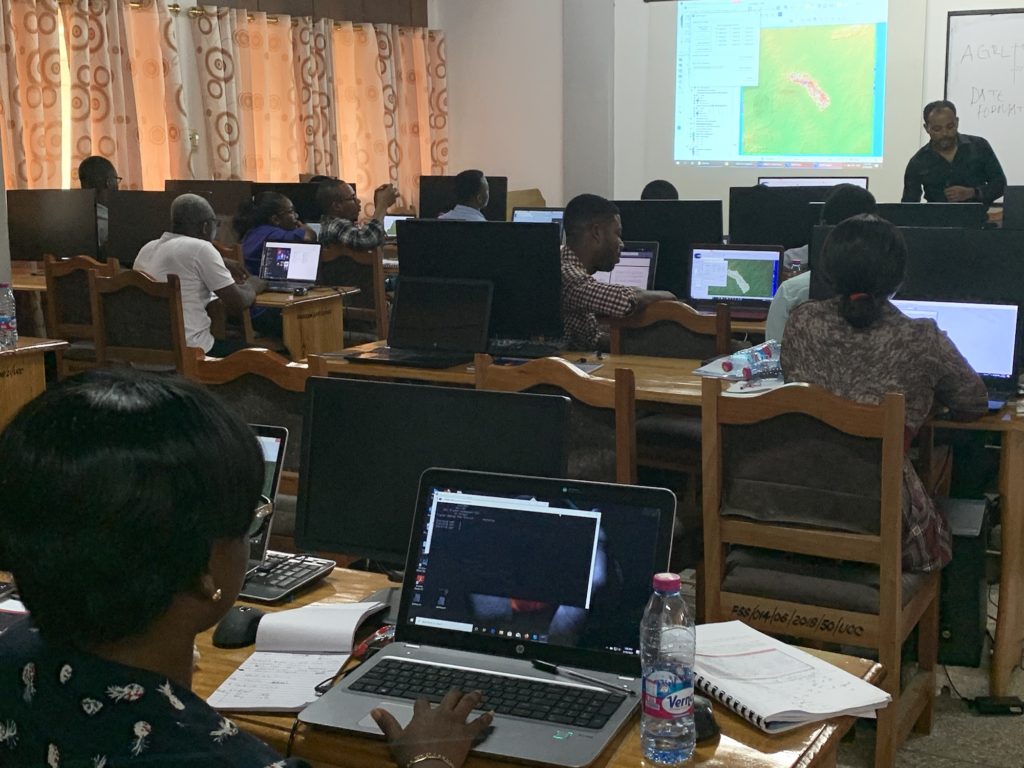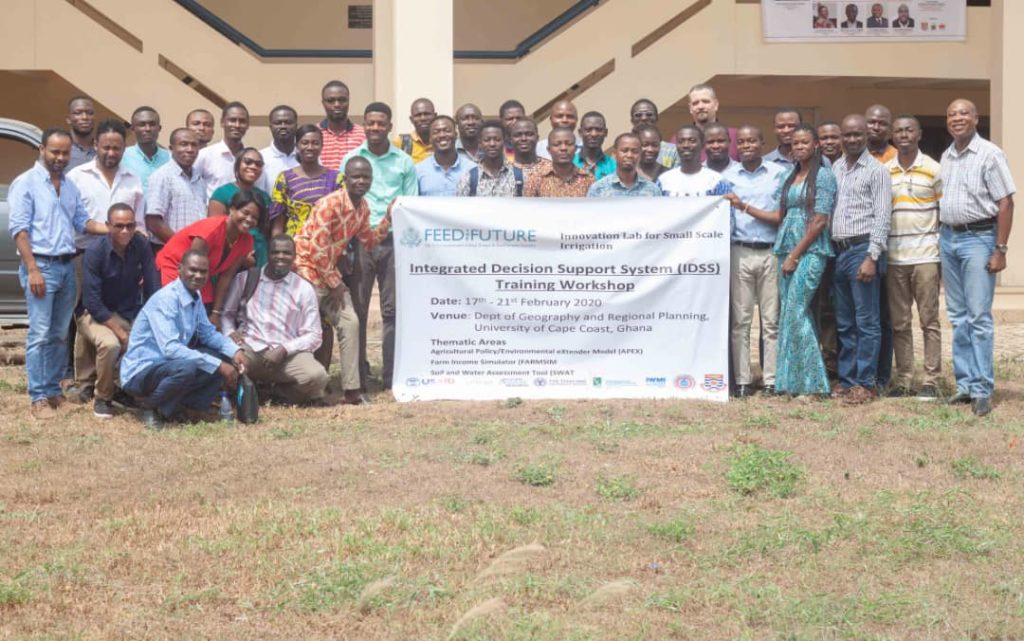What will happen to the environment, to farmers’ income, and to families’ nutritional health if small scale irrigation is rolled out across river basins in West Africa and elsewhere on the continent?
Since it is impossible to precisely predict the future, the best way to anticipate positive outcomes and potential negative side effects is to use scientific modeling tools to produce plausible future scenarios.
That’s why building skills on how to use such modeling tools is a key component of the Feed the Future Innovation Lab for Small Scale Irrigation (ILSSI). Since 2014, ILSSI has hosted trainings on its integrated decision support system (IDSS), inviting agricultural extension workers and professionals working in national research centers, universities, and private sector companies to build modeling skills that enable them to evaluate the impacts of small scale irrigation on water resource risks, agricultural production, environmental sustainability, household income, and nutrition.
By using a common set of powerful tools, these decision-makers can better manage water resources across basins in the region, particularly in attempts to address climate change. Already, basin authorities, irrigation departments, and national water planning agencies are applying the tools at multiple levels to help standardize their analysis and planning.

Significant demand for shared tools
ILSSI’s latest IDSS training took place at the University of Cape Coast in Ghana, on February 17–22, 2020. For the first time, ILSSI provided a regional training, which will help technical experts across West Africa better coordinate their data collection and analysis. Participants taking part in the training originated from nine West African countries, namely Ghana, Benin, Burkina Faso, Côte d’Ivoire, Gambia, Niger, Nigeria, Senegal, and Togo.
The integrated decision support system includes the integrated application of tools such as the Soil and Water Assessment Tool (SWAT), Agricultural Policy Environment eXtender (APEX), and Farm Income and Nutrition Simulator (FARMSIM). These can be used to evaluate the interaction between climate, water, and agriculture, and decision-makers can therefore draw on them to plan for different potential scenarios in the future.
The IDSS training usually extends over five days, during which participants are taught about the integrated application of the IDSS models and receive hands-on training drawing on relevant examples. The events are adjusted to meet participants’ needs, and have in the past been updated to include training on advanced SWAT, GIS, and AutoCAD. Training documentation and open access software is also distributed.
After the event, ILSSI experts continue to support participants, providing advice for professionals and mentoring students and research scientists. The engagement is especially strong with graduate students and research institutions, as reflected in multiple peer-reviewed publications.

Building skills across the continent
Since 2014, ILSSI has provided the IDSS training 13 times in Ethiopia, Ghana, and Tanzania, educating a total of 874 participants. These events were hosted and organized by local institutes such as universities, federal offices, and CGIAR research centers, and have included diverse participants representing universities, international and local research institutions, private companies, and more.
Although the IDSS trainings were provided in Ethiopia, Ghana, and Tanzania, the participants over the course of the past seven years have originated from more than ten African countries as well as from Europe and the United States. This continent-wide interest in common analytical tools that can enhance understanding of interactions between agriculture and the environment may prove particularly useful as African countries move ahead with regional-level coordination of their response to climate change.
ILSSI will continue to offer IDSS trainings in the sub-Saharan countries where needs are expressed. Coming up are a training in Côte d’Ivoire focused on cocoa production under climate change and a training in Ethiopia related to irrigated fodder production for livestock.


